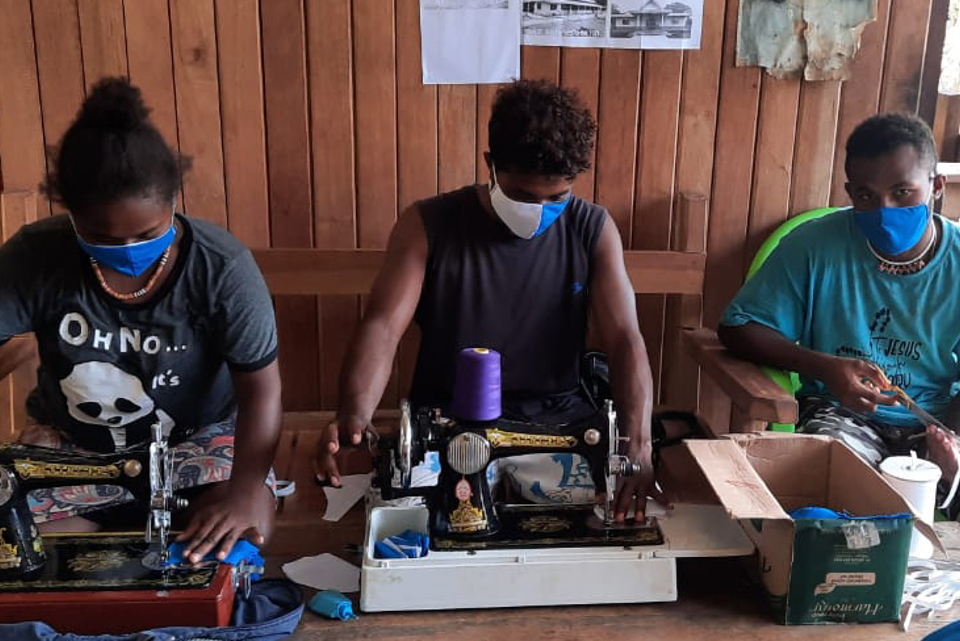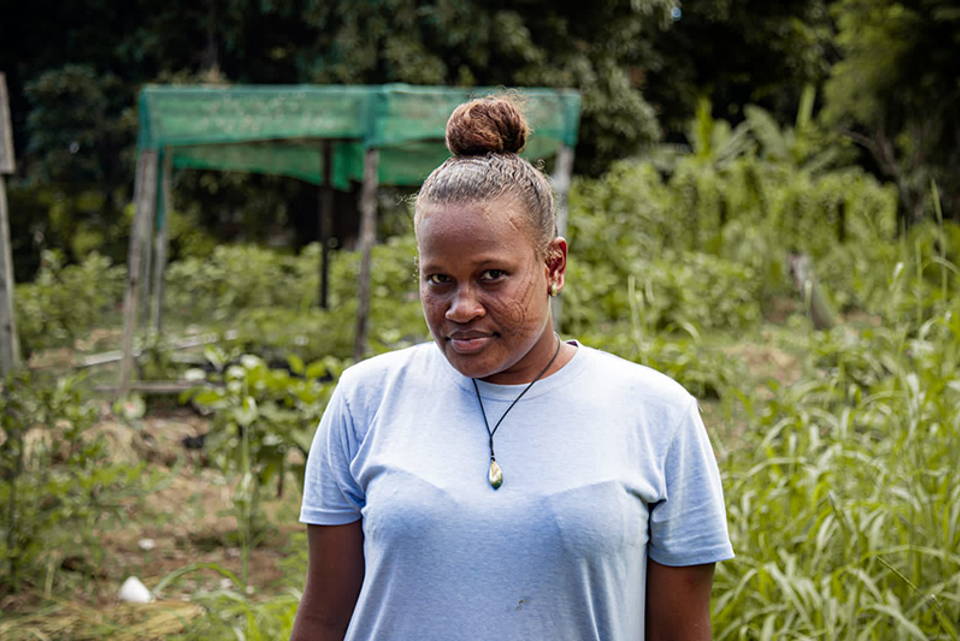The Solomon Islands is currently facing its first COVID-19 outbreak during this pandemic, with nearly 6,000 cases recorded and the hospital system on the brink of collapse.
The Pacific island nation had remained COVID-free throughout 2020 and 2021, but the virus is now spreading rapidly through a largely unvaccinated population.
“What really concerns me is how this outbreak will impact our health system. There are only 59 beds in the national isolation centre in Honiara, and many healthcare workers have already been infected by COVID," says Rose Clough, Caritas Australia Solomon Islands’ Program Quality Coordinator.
“This outbreak will also make things much harder for poor and vulnerable communities, who will be financially impacted by lockdowns, and have less access to high-quality testing and healthcare.”
“Caritas Australia is working with the Church networks in the Solomon Islands to support vulnerable communities during COVID-19, including helping communities make their own soap and face masks, because low-income families can’t always afford to buy these products.

Community members make face masks to combat the spread of COVID-19. Photo: Caritas Australia Solomon Islands
Youth at rural training centres are prepared for the COVID-19 outbreak
As the number of cases continues to rise, students and teachers at the Divit Rural Training Centre in Northwest Guadalcanal have been preparing for an outbreak by producing their own masks and soap.
Caritas Australia Solomon Islands has been working with Divit RTC in their COVID-19 response efforts since last year, so that the school community can be prepared in the event of widespread community transmission.
Students at the training centre have also boosted their horticulture and livestock farms to cushion economic falls projected during this pandemic and guarantee their food security during lockdowns.
In the last 18 months, the rural training centre received 180 chickens to build their poultry farm, along with a variety of seed supplies and gardening equipment. Caritas Australia Solomon Islands also linked the rural training with a commercial chicken supplier that provided technical skills training and marketing support to students.
Rose, a year three agriculture student, is responsible for operating the poultry farm as part of her practical training.
“We are taught a lot of things here, and in my course, we also undertake studies in tourism and hospitality, basic business and life skill training,” Rose said.
“Back home I do a lot of gardening and this has helped me in the agriculture course, but I didn’t know about livestock farming, especially keeping chickens. How to take care of them and how to prepare their feeding on a scheduled basis, that sort of thing.”

Rose learnt how to take care of the chicken farm as part of her training. Photo: Caritas Australia Solomon Islands
Divit’s poultry can produce up to 300 eggs a week that are sold at the local market and used to feed the school.
The surrounding communities near the rural training centre are benefiting from the students’ production, with an additional 2,000 people able to access soap, face masks, vegetable and livestock.
You can help provide support to communities impacted by the COVID-19 crisis in the Pacific. Donate to the Pacific Emergency Appeal today.
Along with your generous support, this program is supported by the Australian Government, through the Australian Humanitarian Partnership (AHP).

















